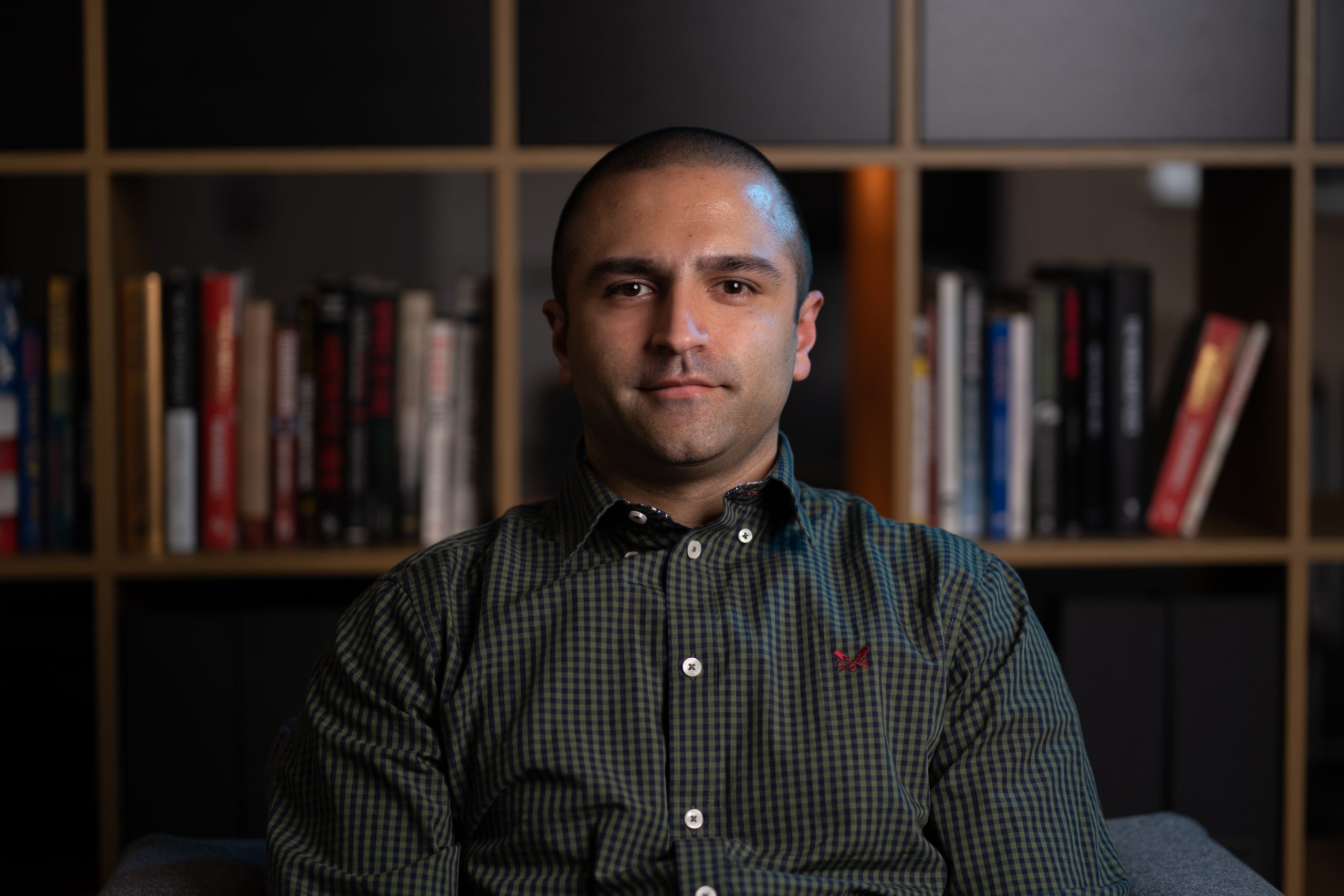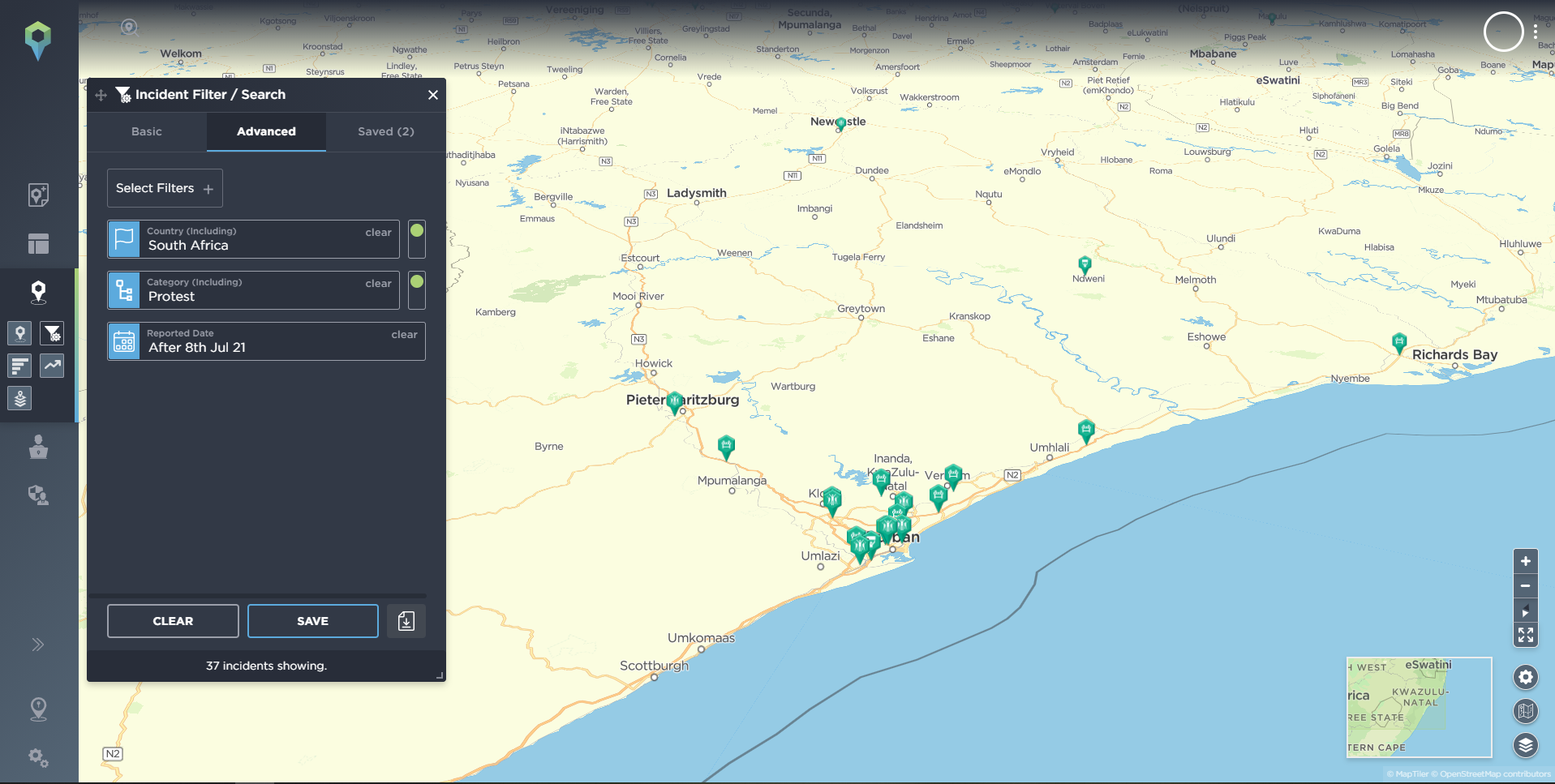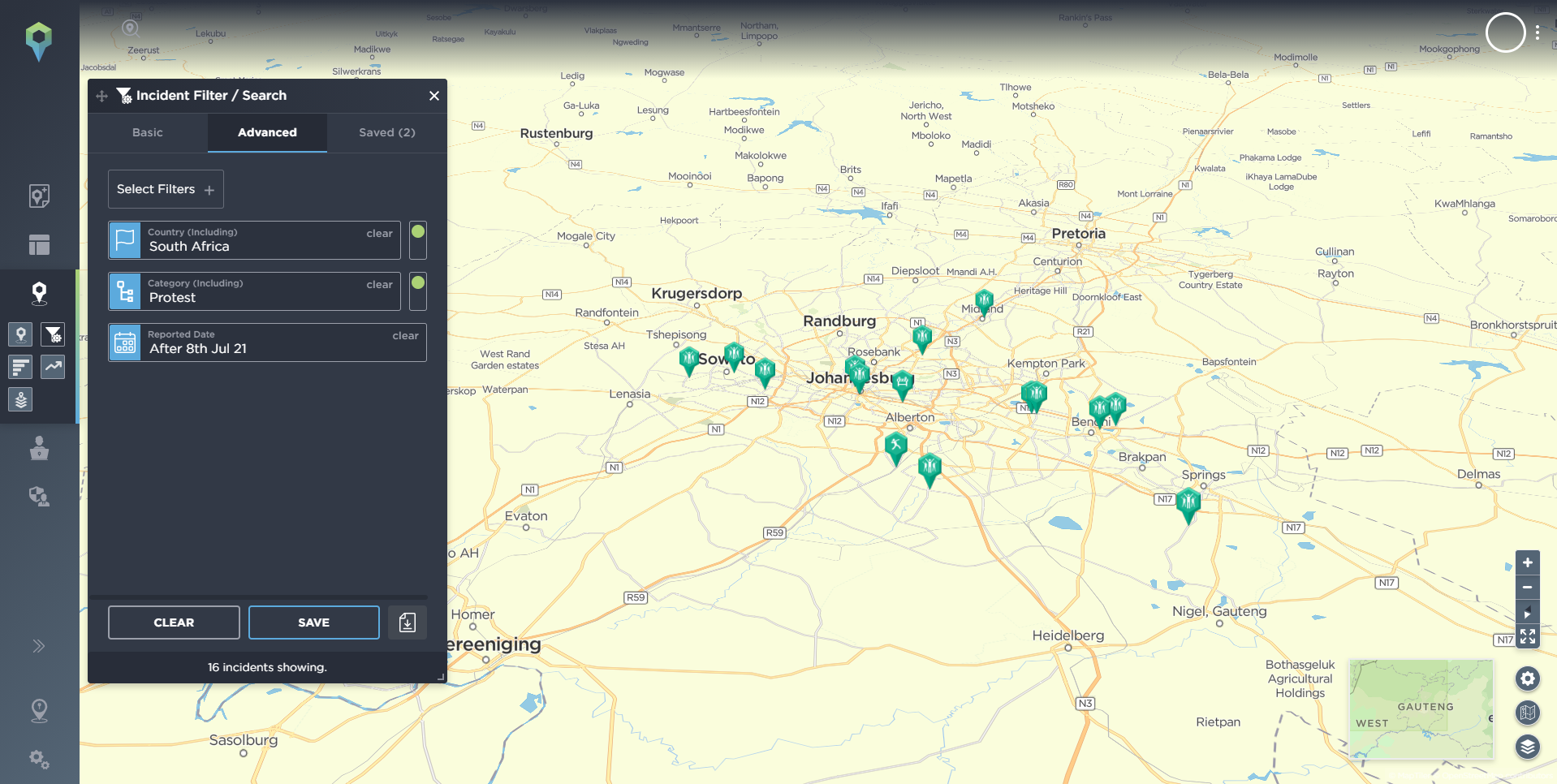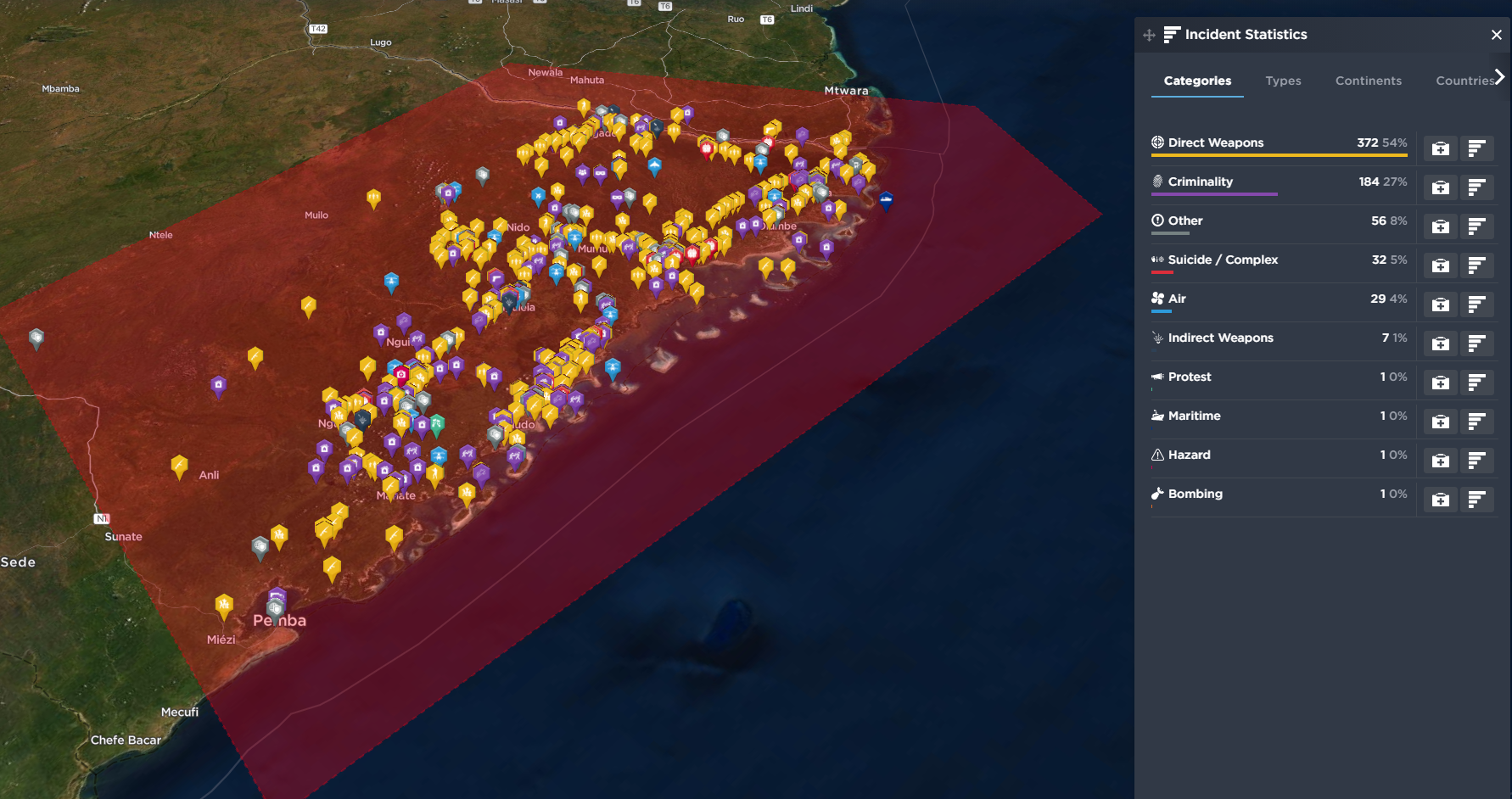What’s driving the protests and unrest in South Africa?
Following the jailing of former President Jacob Zuma on the 8th July 2021, South Africa has witnessed increasingly violent protests across the country.
Intelligence Fusion’s Senior Regional Analyst for Africa provides an overview of the incident that triggered the unrest, the security impact of the protests and what we can expect moving forward.
What caused the protests in South Africa?
Former President Jacob Zuma, who had faced corruption charges, handed himself over to the police to serve a 15-month sentence for contempt of court. Although he could be released in months, his jailing marks a watershed moment for the ANC (African National Congress) and President Ramaphosa, who had promised to tackle endemic corruption within the ANC, a major cause of public disillusionment with the government and a matter that has damaged the ANC’s credibility.
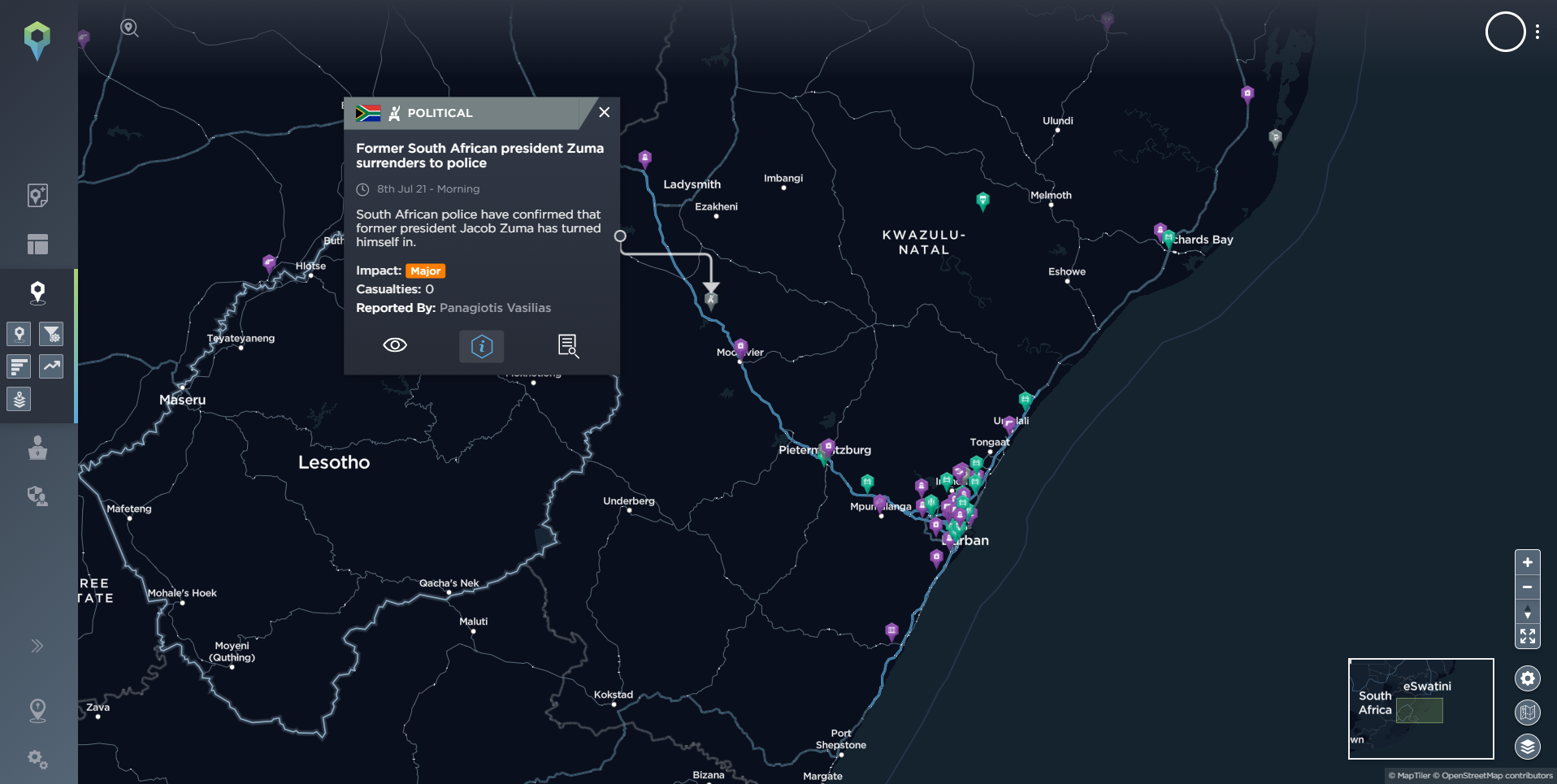
Former President Jacob Zuma surrenders to the police triggering mass protests in South Africa. [Source: Intelligence Fusion]
Who is Jacob Zuma and why are the people of South Africa protesting his arrest?
Jacob Zuma was known as the ‘father’ of the Radical Economic Transformation (RET) faction of the ANC, an entrenched faction opposed to President Ramaphosa. Zuma’s jailing also comes days after the suspension or arrest of other members of the RET faction, a faction that argued that “white monopoly capital ”was to blame for the majority of black South Africans being left marginalised in the post-Apartheid era. Ace Magashule, secretary general of the ANC, was suspended and Carl Niehaus arrested for contravention of COVID-19 lockdown regulations.
In 2017, tens of thousands took part in the ‘Save SA’ anti-corruption protests demanding the resignation of the then President Zuma. Despite several corruption allegations levelled at Jacob Zuma since he took power, his supporters see him as ‘the people’s president’. Zuma was born into poverty and fought the apartheid, contributing to his popularity among many poor South Africans. Pro-Zuma supporters have repeatedly sung liberation-era songs during protests in support of the former president. His supporters subscribe to his belief that the economy is controlled by “white males” and RET’s proponents/Zuma supporters have argued that Ramaphosa has been bought by wealthy white men. Zuma, the country’s first Zulu president, remains a popular figure, especially in his native KwaZulu-Natal.
With the threat of arrest or imprisonment hanging over Jacob Zuma, his supporters had threatened to make South Africa ungovernable in the event that Zuma is arrested. Zuma and his supporters view corruption charges against him as “politically motivated”.
When did the South African protests begin?
Protests began in Zuma’s native KwaZulu-Natal Province, including in Durban and Pietermartizburg, and spread to the Gauteng Province, including in Johannesburg, and have so far seen at least 10 people killed, almost 500 arrested and about 200 shopping malls looted. We’ve also reported:
- Key infrastructure including transport networks and the logistics sectors have also been affected during protests in South Africa
- Around 23 trucks were set alight at Mooi River around 150 kilometres northwest of Durban as protests escalated into looting and arson attacks
- Hundreds of businesses have been looted with a number of liquor stores being targeted
The country is currently on a COVID-19 level 4 lockdown with the sale, dispensing and distribution of liquor prohibited. Since COVID-19 restrictions have been introduced, liquor stores have been increasingly targeted during protests and by burglars.
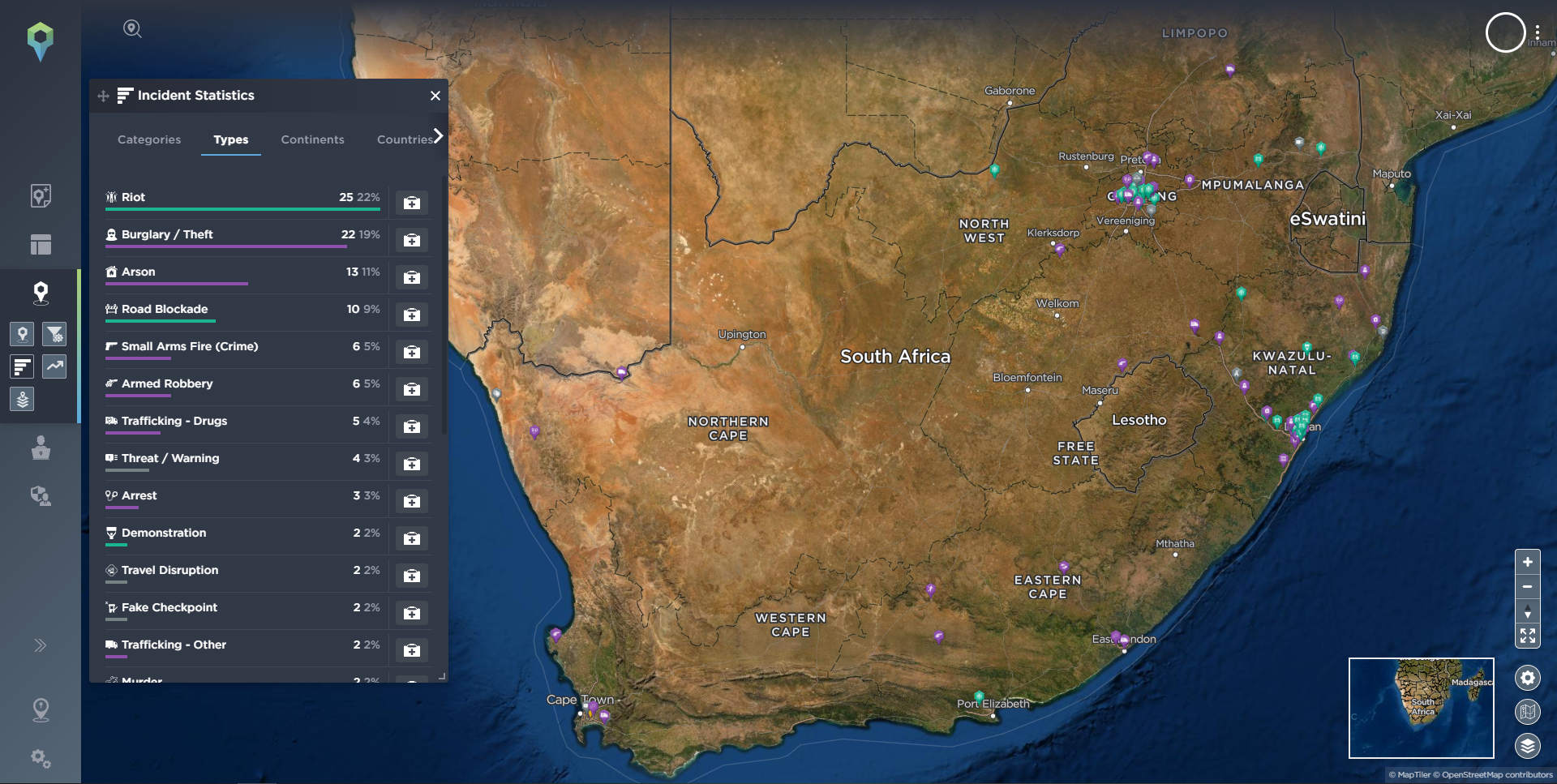
Unrest and violence following the arrest of Jacob Zuma in South Africa. [Source: Intelligence Fusion]
With the police overwhelmed, the South African military has been called in to help quell unrest and with security services overstretched, some groups of residents have also barricaded roads to protect their community from looting and rioting.
What will happen if protests in South Africa continue?
There are concerns that continued unrest and protests in South Africa will lead to food shortages. The South African Rand has already fallen to its lowest levels against the dollar in over two months, damaging investor confidence.
President Ramaphosa condemned attempts by some to “agitate for violence and disorder along ethnic lines” and “opportunistic acts of criminality”. His claims of ethnic mobilisation have been condemned by some observers and could fuel further unrest, causing further damage to investor confidence and the economy.
The unrest and protests in South Africa continues to escalate, threatening to disruption to business operations and risking the safety of employees in the region. To keep up to date with the fast-changing situation, and to better understand how Intelligence Fusion are currently assisting clients in Johannesburg, Durban and other major cities, speak to a member of the team today.
